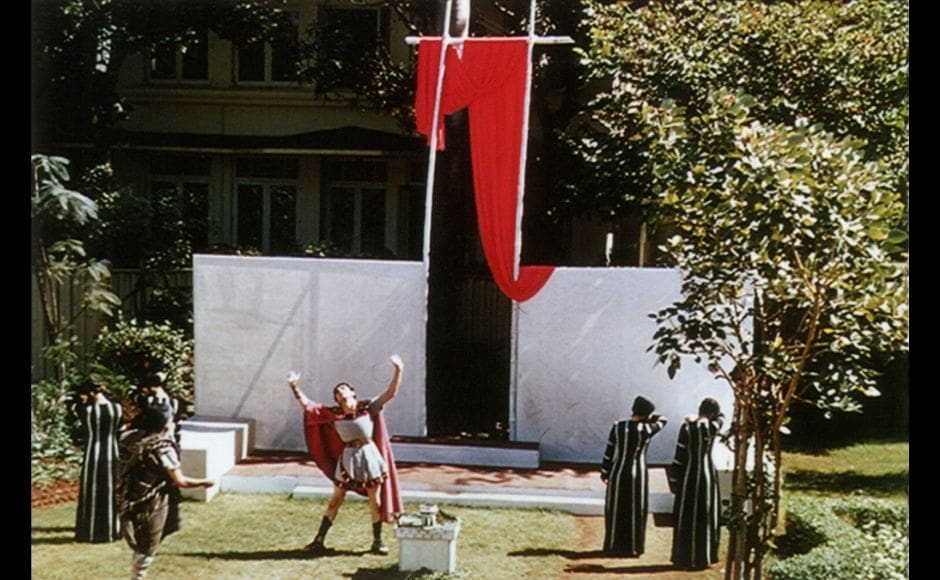
1/8
Scene from <em>Oedipus Rex</em> with Ebrahim Alkazi as Oedipus, 1954, at Bhulabhai Desai Road, Mumbai. Sophocles’ <em>Oedipus</em>, considered one of the greatest tragedies of all time, is a fast moving, almost detective-like drama. Choral speech, the stylised dance-like movement of individual actors against the mass of chorus, draped royal robes in deep rich tones, sonorous voices raised in rhythm became Alkazi’s signature style in presenting the Greeks to modern audiences. The single-storeyed Bhulabhai Desai Institute faced the Arabian Sea, with waves that furiously lashed the rocks across the road. It was here against a simple set of Greek pillars and a red drape, that Alkazi brought alive this Greek tragedy.
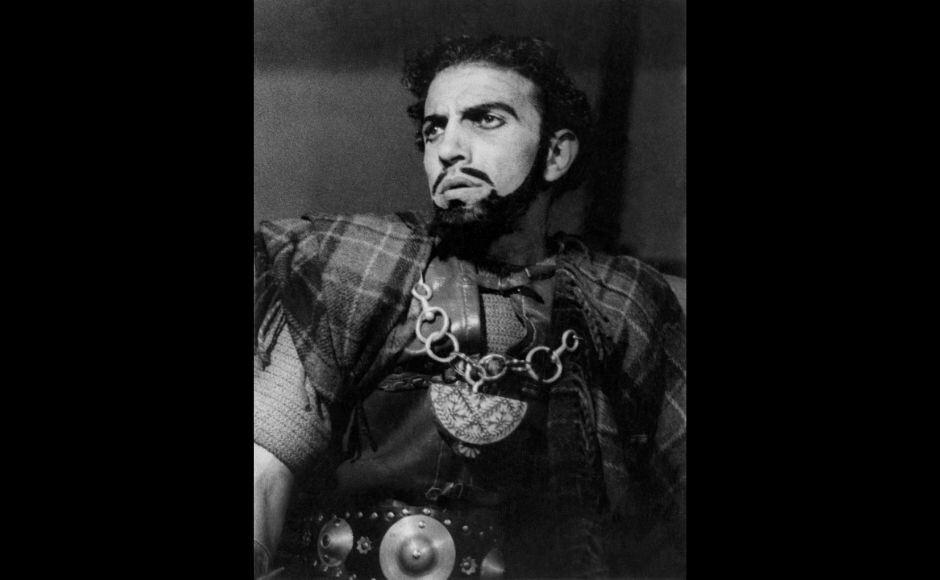
2/8
In the 1950s, when Alkazi enrolled at St Xavier's College, Mumbai, he joined the Shakespeare Society which was then presided by Sultan ‘Bobby’ Padamsee, who had returned from Oxford during World War II. Alkazi was cast in several Padamsee productions namely <em>Othello, Macbeth</em> and <em>Twelfth Night</em>. Later, he was also seen in Oscar Wilde’s <em>Salome </em>and Lajos Biro’s <em>God and Kings</em>. (In the picture above) Scene from <em>Macbeth</em>, 1956, with Ebrahim Alkazi as Macbeth.
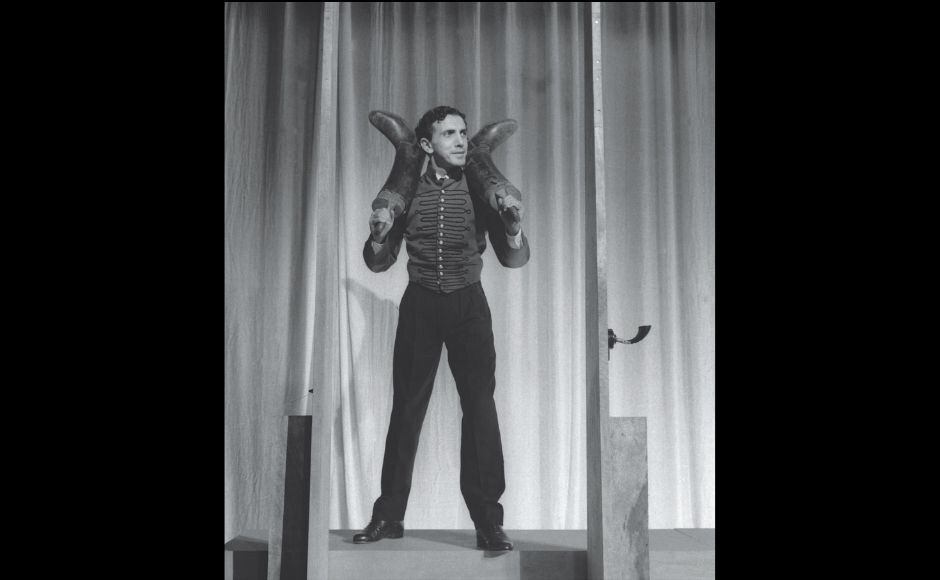
3/8
Ebrahim Alkazi as Jean in August Strindberg's <em>Miss Julie</em>, 1960. Of the play, Girish Karnad had said that it opened up new dimensions of the theatre experience to him. In the play, when Alaknanda's Miss Julie comes to the end of her climactic speech, ‘Kill me, kill me too, if you can kill an innocent bird’, that was accompanied by ‘sentimental music’, Alkazi, playing Jean, struck a match and on cue, the lights brightened and the music was killed. Such precision and sophistication of presentation was new to Bombay theatre then.
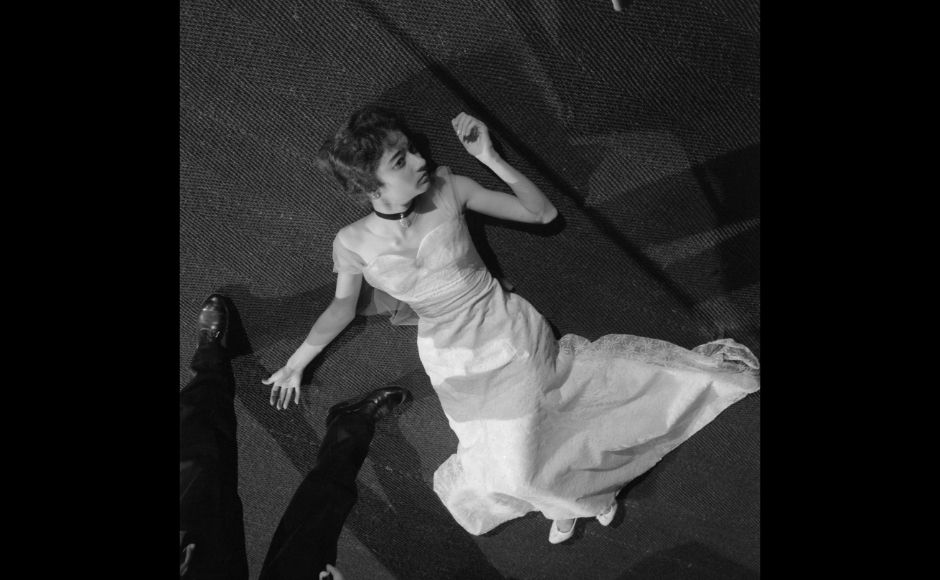
4/8
Alakananda Samarth (in the picture above) as the young, alluring vivacious daughter of the Count, Miss Julie, was the ideal foil to Alkazi's sexual predator Jean, the valet in Strindberg’s masterful interplay of sexual tension across the class divide. Alaknanda belonged to Shobhana Samarth’s family and was film star Nutan’s niece.
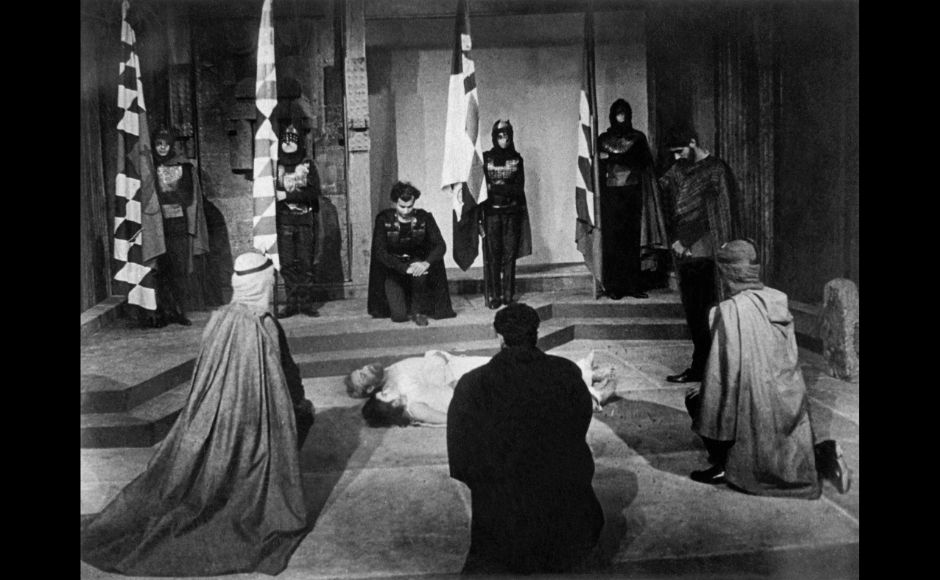
5/8
When Alkazi was appointed as the Director of the National School of Drama in Delhi, Alkazi staged many huge productions, especially historicals, from NSD's rather small setup. Alkazi had carved out an excellent studio theatre by removing a wall between two rooms to make an eighty-seat auditorium and a stage as large as the seating. Sophocles’ <em>Oedipus</em> and Shakespeare’s <em>King Lear</em> were presented there in Urdu, and later Mohan Rakesh’s <em>Lehron ke Raj Hans</em>, among others. (Above) Scene from <em>King Lear</em>, 1964, with Om Shivpuri in the titular role. Shivpuri had earned a lot of accolades for his performance and was ofted touted to be the youngest actor to play King Lear on stage.
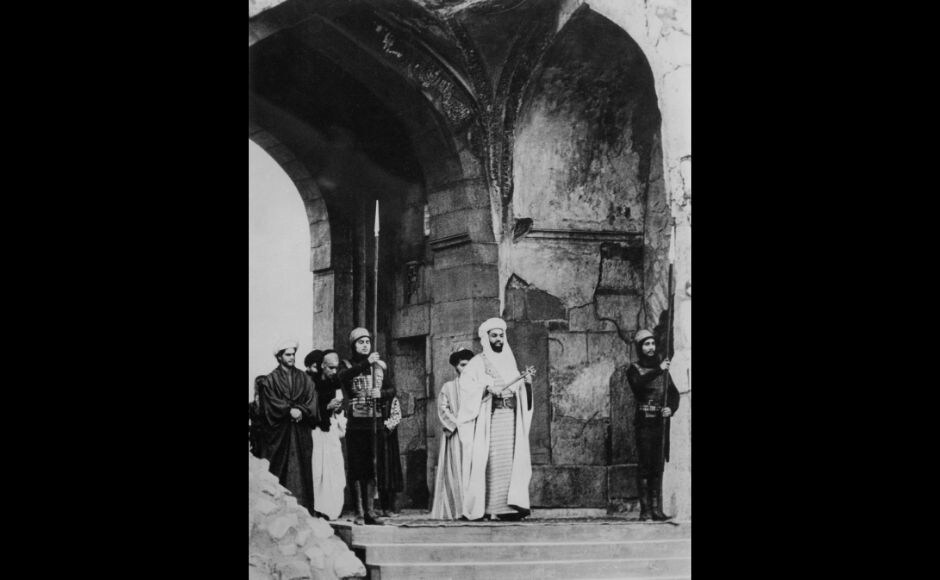
6/8
With Ebrahim Alkazi's historical productions, Delhi’s history came alive at the Purana Qila. A long flight of steps led down from a huge archway that was sometimes filled by the ceremonial procession of a king, and at other times resounded to the clash of swords as Razia Sultan battled for her life and yet at other times was full of the rushing, rioting mobs hungry for food in Girish Karnad’s <em>Tughlaq</em>. In the picture above, scene from <em>Tughlaq</em> by Girish Karnad, 1972, with Manohar Singh as Muhammed Bin Tughlaq.
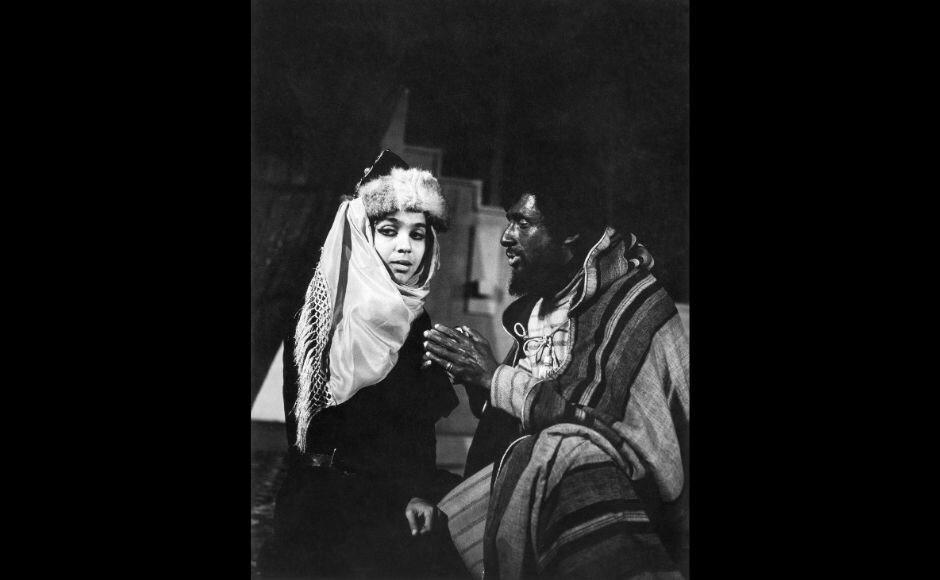
7/8
Scene from <em>Sultan Razia</em>, 1974, written by Balwant Gargi and directed by Ebrahim Alkazi. In the picture above, we see Rohini Hattangadi as Razia and Naseeruddin Shah as Jamaluddin Yakut in the NSD production staged at the Purana Qila in Delhi.
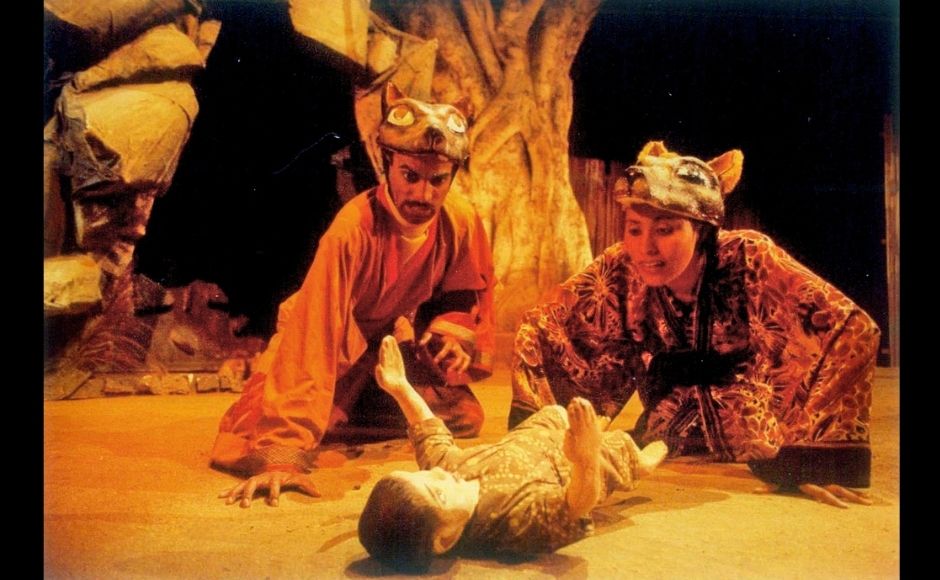
8/8
Rudyard Kipling’s Jungle Book was directed by Feisal Alkazi in 1997 for NSD’s Theatre in Education Company as it is the ultimate coming-of-age story. It was retitled <em>Yeh Bhi Jungle, Woh Bhi Jungle</em>. (In the picture) Walter Peter and Seema Diwan with baby Mowgli. In the play, Mowgli experiences every important transition of adolescence: the breaking of rules, attraction to a delinquent subculture, asserting his manhood and finally, a search for his identity